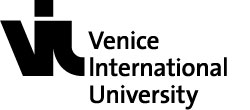Su2206 Social Marketing
Professors
Schedule
Corse outline
This course will explain principles, techniques and potential of social marketing approach for addressing social problems and promoting positive social change. Social marketing seeks to change strongly ingrained behaviours or firmly held beliefs in a manner that benefits individuals and society at large.
Social marketing both learns from and critically evaluates commercial marketing. It builds on several individual, community and social level theories of behavior change to better understand particular social problems and to design downstream, midstream and upstream social marketing interventions to improve health, decrease injuries, protect the environment, build communities, and enhance well-being.
Objectives and competences
The course will provide students with key concepts and skills of social marketing that are needed for planning, designing and implementing programs of behavioural and social change.
Key competences
- Understand theoretical foundations of social marketing,
- Understand social marketing planning, research and communication,
- Contextual and relational thinking about social problems,
- Ethically responsible application of social marketing techniques and concepts to the solution of various social problems
Learning outcomes
After studying this course, students should be able to:
- Define social marketing and understand the main theories and models of behaviour change;
- Apply the social marketing models and skills to problem identification and framing, and to create individual, environmental and policy change through social marketing programs;
- Develop a social marketing plan for target groups in a collaborative setting and with principle of value co-creation;
- Apply the basic and advanced techniques for innovative and creative development of social marketing strategies according to social marketing benchmark criteria;
- Understand the critical points for effectively managing the development, implementation and evaluation of social marketing projects;
- Critical and ethical consideration of social marketing projects.
Learning and teaching methods
Lectures, seminars, individual and group project (case studies) work and discussions, oral presentations.
Assessment
Exam (40 %)
Seminar work and its oral presentation (50 %)
In-class participation, evidence of preparation for class discussions (10 %)
Bibliography
French, J. and Gordon, R. (2015). Strategic social marketing. London, Sage.
Selection of scientific and expert articles presented in weekly teaching plan, before the start of the course.




















